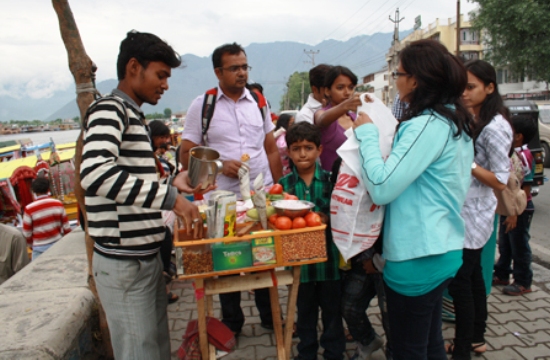As the arrival of more than a million tourists to Kashmir this year created a record of sorts, Kashmir Life examines the major failures that reduced the benefits by way of jobs and turnover and limited capacities of the hospitality sector.

It has been the most happening year in the history of tourism in Kashmir. There were instances in which visitors drove to Srinagar but failed to have a shelter and spent the nights in buses. Hotels reported 100 percent occupancy for three months and even at the peak of Amarnath pilgrimage rush, the general tourists would fill around 70 percent occupancy in Srinagar.
For the first time, Srinagar airport received as many as 29 flights a day and the fair structure reached a level that it was out of reach for commoners especially those who need to travel for medical purposes. The introduction Kashmir as a wedding destination was a major event. Two wealthy families from Delhi and UP flew their guests in charters to Srinagar and solemnised the marriage here. For almost a week both the functional 5-stars hotels in Srinagar were fully booked, so was the SKICC.
“I am told, another major destination wedding is taking place by the end of this year,” said Dr Amit Wanchoo, who was responsible for the first such wedding in June. “It is a newer concept that could add to our profile.”
Everybody associated with tourism in Kashmir made a good earning. These include the state institutions as well. Getting a ticket for Gondola cable car in Gulmarg, for instance, is an on-line affair now. Long lines outside the Gandola gates through the day suggested the machines are making the best of the season. This could be true with all the gardens around Srinagar. The government remained sensitive to the sector’s requirements because better arrivals meant good publicity and better yield. But there were five major failures that the sector should look to addressing the next season.
Leasing Luxury
In 2011, when the hospitality sector across India gauged the mood of the Indian traveler with Kashmir at the top priority, big players also started showing sudden interest in Kashmir. Major travel agents wanted a lot of accommodation on rent for the entire season. The local market that had barely come out of three disturbed summers in 2008, 2009 and 2010 was willing to give its property to anybody who could pay in advance and run it at no costs to the owners. A number of hotels – some of them with good brand names, agreed and the deals were struck in March and April 2011. The deals fetched them cash in advance but kicked them off the track for the season. It was the lease-holder doing the bidding and making most of it.
In 2012 it was expected the trade would do away with the practice but it did not. “The trend exists,” says Imtiaz Ahmad of the Residency Hotel. “Most of the properties that are off track and lack adequate branding do enter into such deals but I doubt any hotel with a brand has marketed itself.” Usually, Imtiaz says, these are low budget addresses that help the travel agent save much.
Bilal Ahmad owns a couple of hotels. In one case, he says, “we had leased the property for the entire season simply because we were unsure of the situation. “But this year we are running it ourselves.”
“There are people who still continue with this system because it hedges the risk and fetches them cash in one go that they might be investing in other businesses.”
Azim Tuman, who heads the houseboat owners association, said the trend is a crisis and is gradually taking the tourist activity to places like Nowgam and in certain areas of the old city. “Nobody in the houseboats is doing this, be sure, we will not change,” he asserted.
This practice impacts brand-Kashmir much more than liquidity loss. “We are increasingly sending dissatisfied visitors back home which is not a good omen for the market,” a major travel agent with nearly four decades of experience said. “The ‘brand-Kashmir’ belongs to us and not to the person who hires a hotel so the brand impacts as he earns.”
Imported Professionalism
Kashmir might have a very long history of being in the hospitality sector, but the reality is that it gets more than half of its workforce from outside to man the show. The reasons are many. Imtiaz says, he has seventy percent non local staff because professionals are not locally available.















